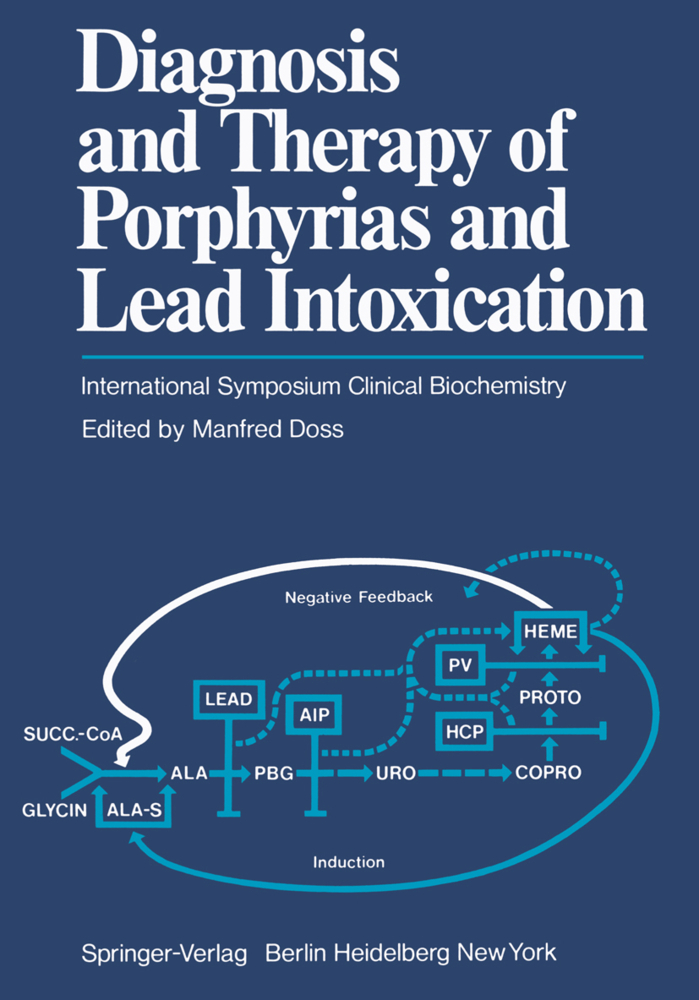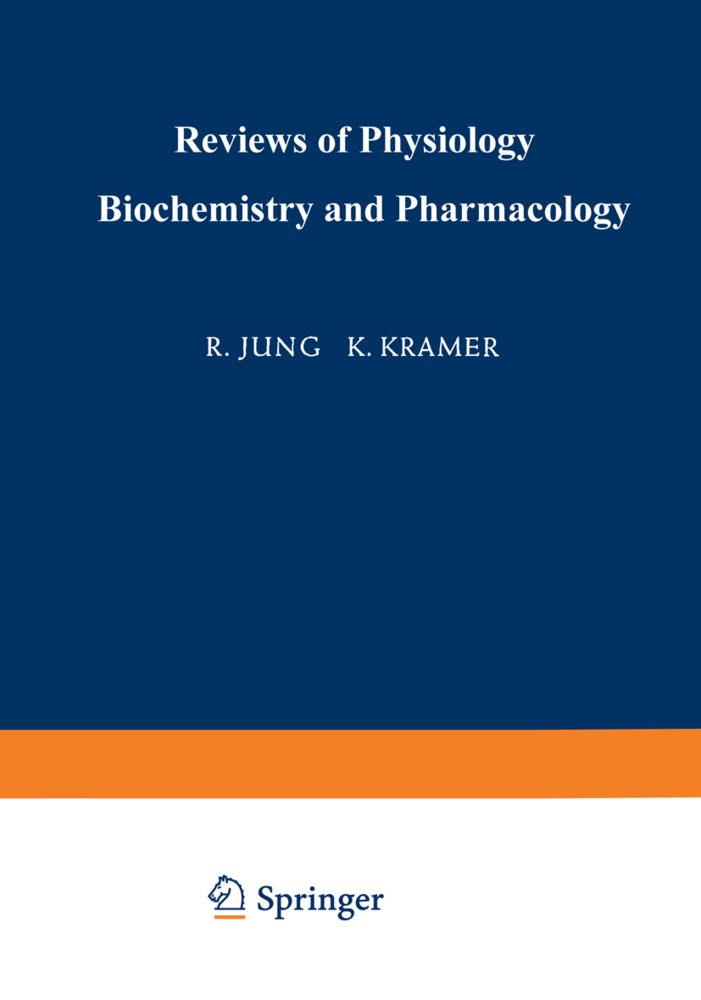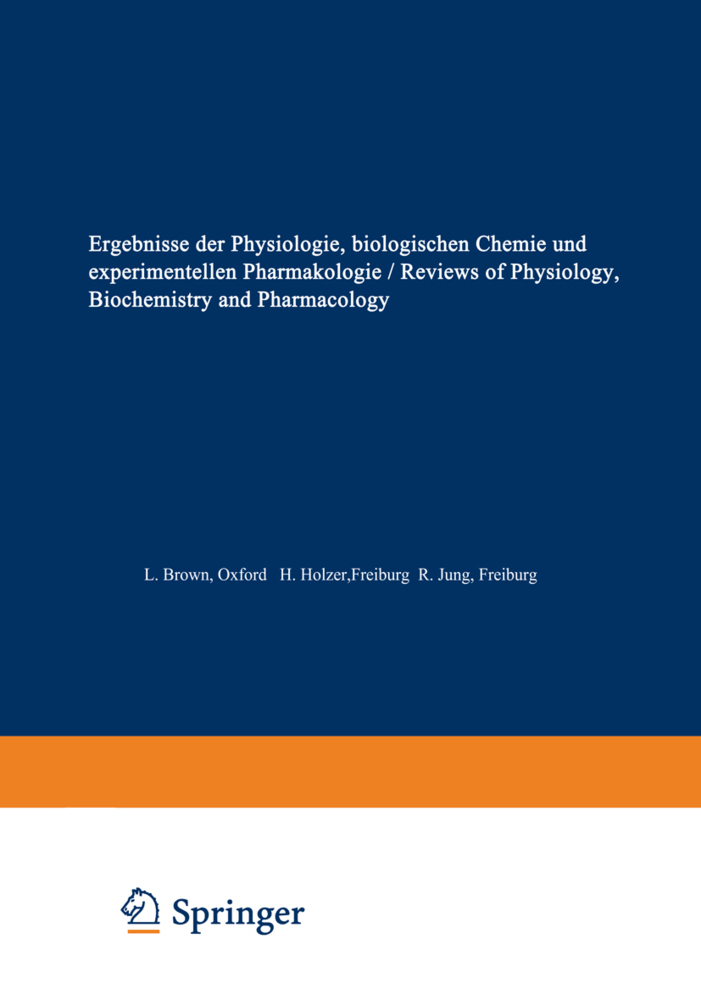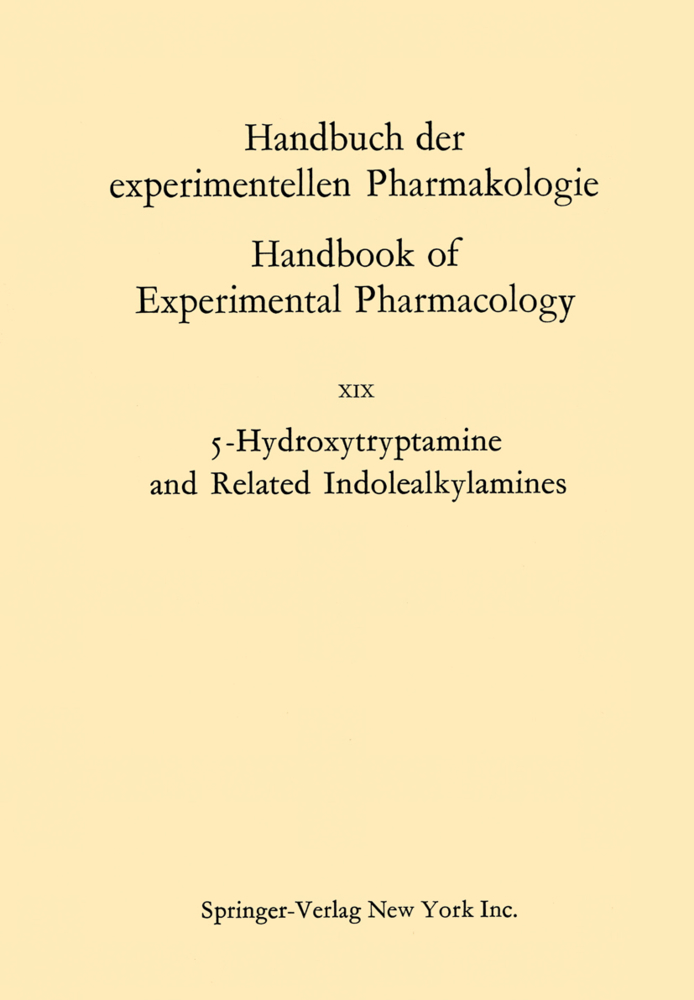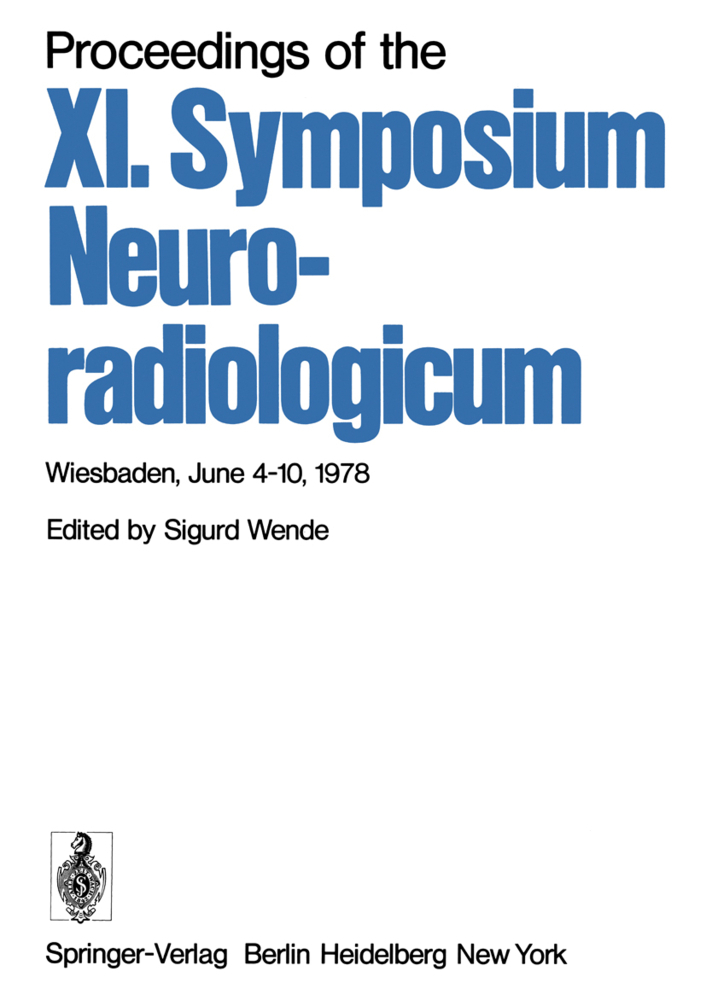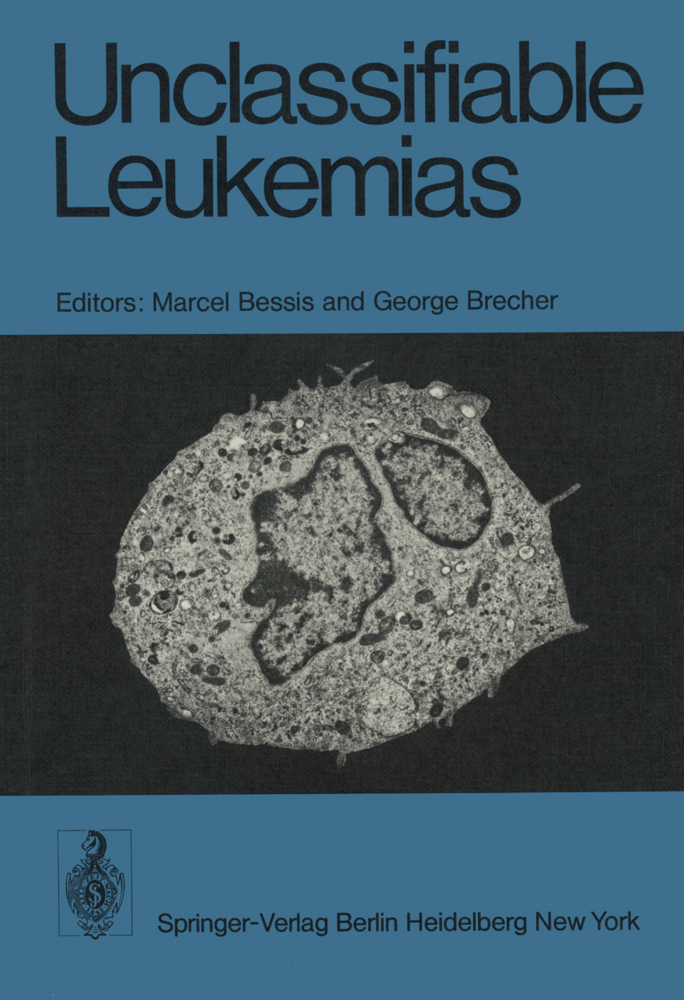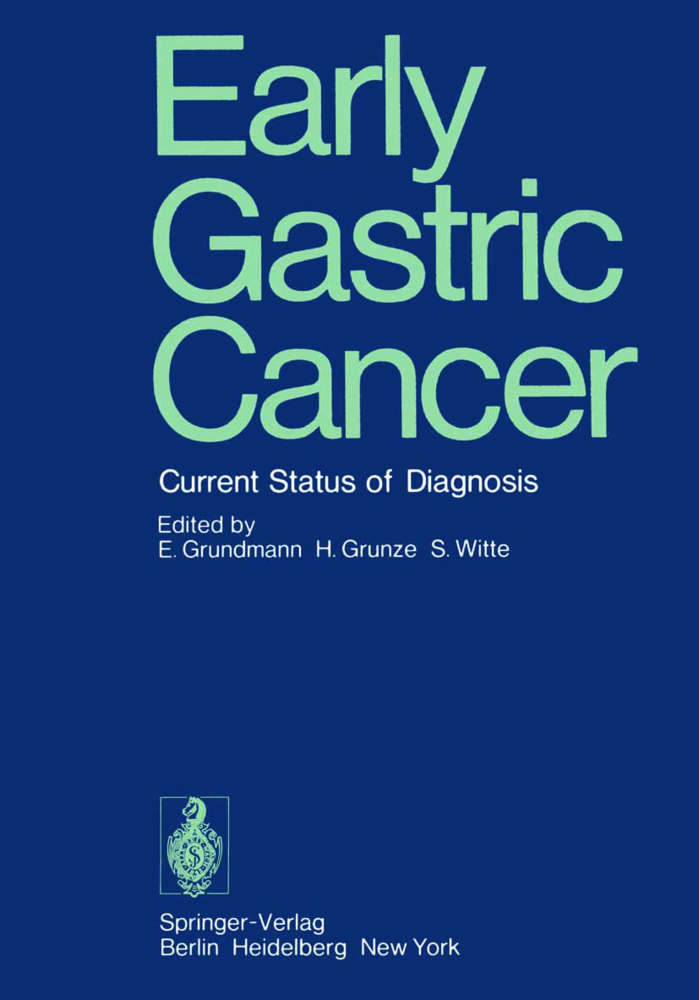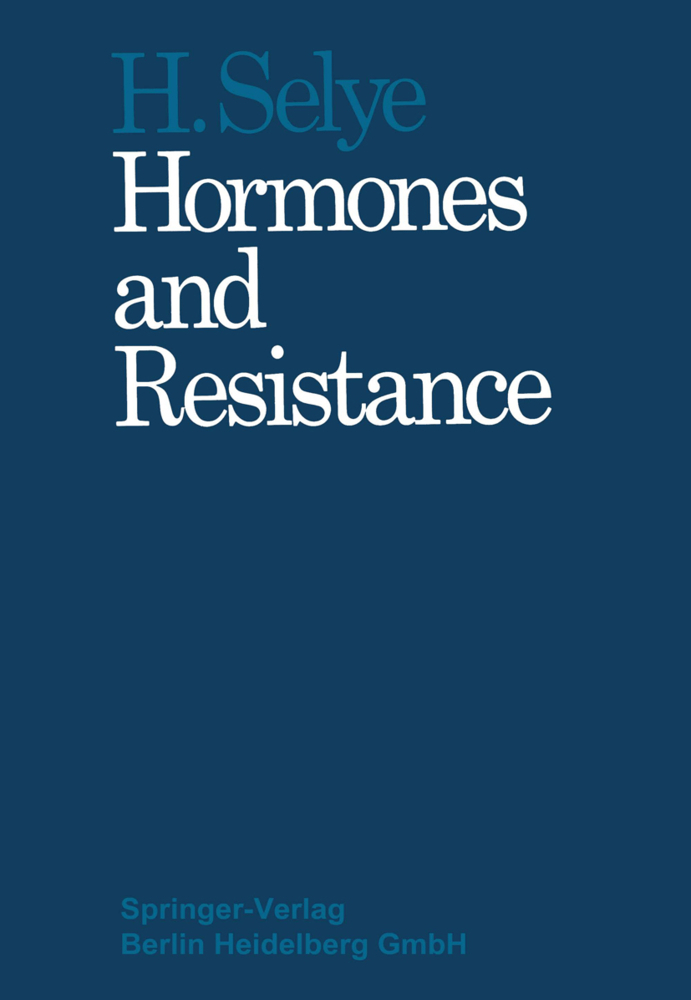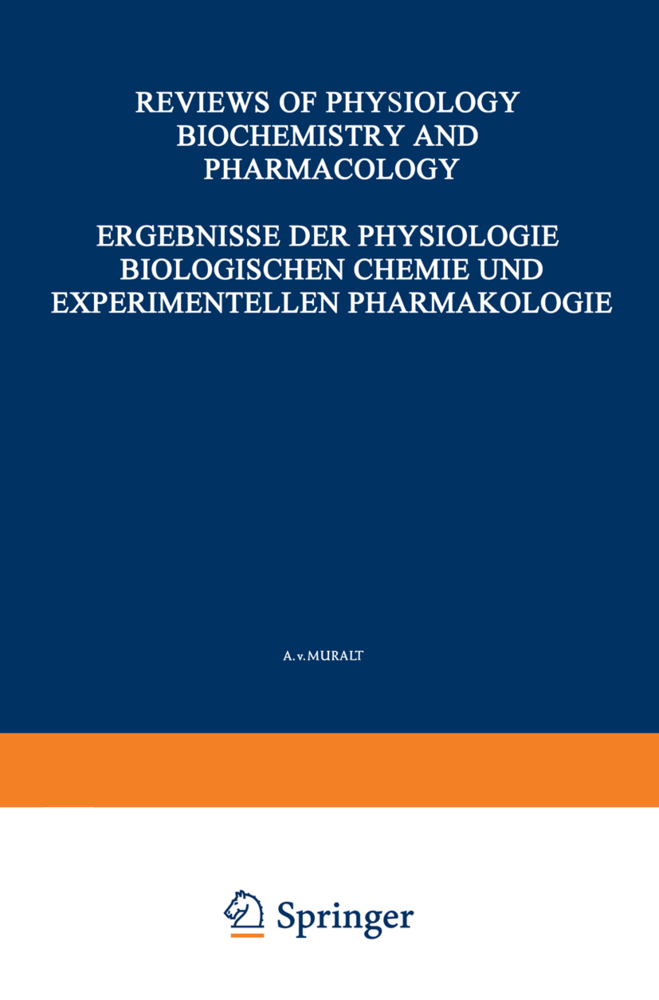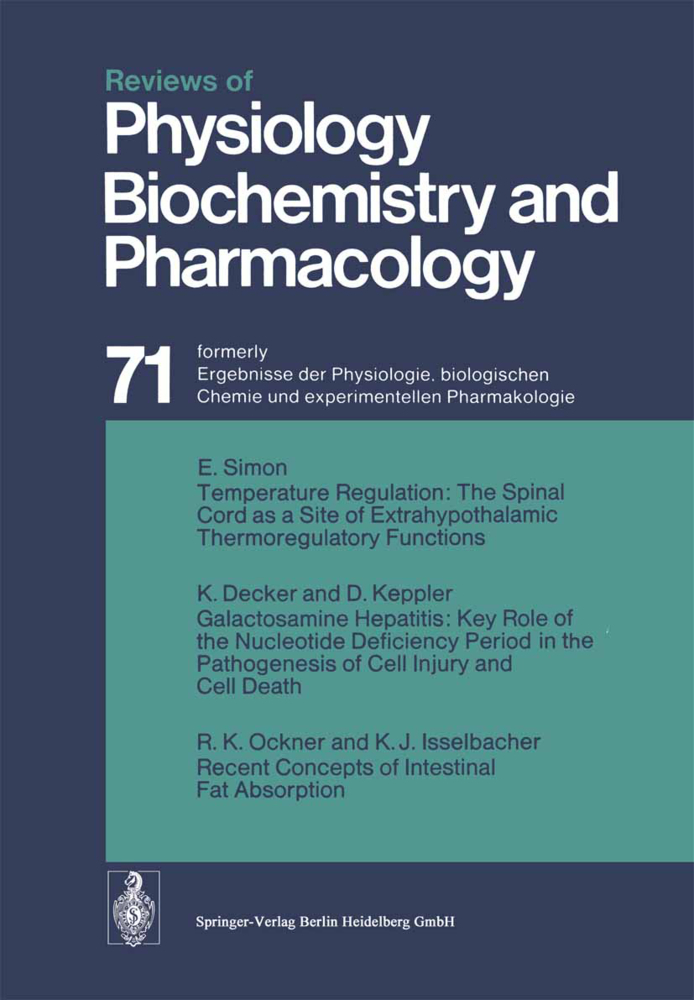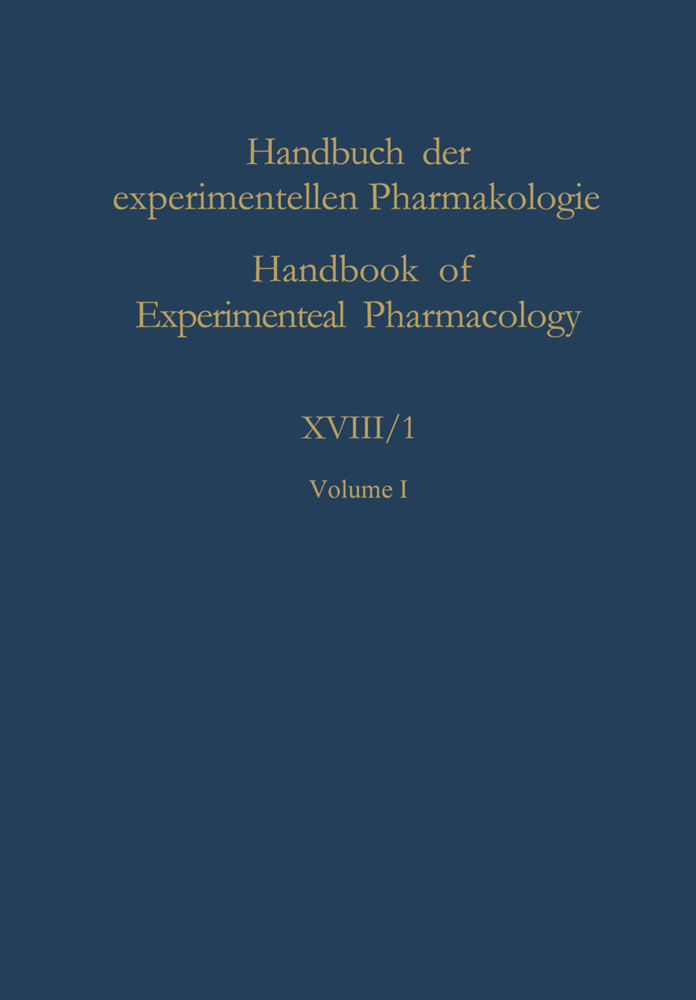Diagnosis and Therapy of Porphyrias and Lead Intoxication
International Symposium Clinical Biochemistry
Diagnosis and Therapy of Porphyrias and Lead Intoxication
International Symposium Clinical Biochemistry
On the occasion of the 450th anniversary of Philipp University, the porphyrin research group of. the Department of Clinical Biochemistry in the Faculty of Medicine organized an international symposium. This was held between June 28 and July 1, 1977, under the joint chairman ship of Professor Samuel Schwartz and the editor. The organizers and chairmen of the symposium wish to thank the Sozialminister of Hessen, Armin Clauss, the President of the German Society for Clinical Chemis try, Professor A. Delbrlick, and the Dean of the Faculty of Medicine of Philipp University, Professor F. Neurath, for their support and patronage. We are also grateful to Professor A. Treibs of the Institute of Organic Chemistry, Technical University of Munich. Professor Treibs, a former pupil, co-worker and now successor to the Nobel laureate Hans Fischer, kindly accepted the honorary presidency of this international symposium. The opening ceremony was inaugurated by the chairmen, with welcoming speeches by the President of Philipps University, Mr. Rudolf Zingel and patrons of the university. The editor outlined the 10 years of development of clinical biochemistry at Philipp University and traced in detail the continual development of its chief research effort in porphyria. It was pointed out that following the first international symposium on the regulation of porphyrin and heme biosynthesis in 1973 at Marburg (Doss, M. (ed. ): Regulation of Porphyrin and Heme Biosyn thesis.
Differential Patterns of Heme and Porphyrin Biosynthesis in Liver and Kidney: Metal Ion Blockade of ?-Aminolevulinate Synthase Introduction by Porphyrinogenic Agents
The Regulatory Function of the Mitochondrial Inner Membrane in the Overall Ferrochelatase Reaction
Permissive Effects of Hormone on the Induction of ?-Aminolevulinic Acid Synthase (ALA-S) in Cultured Chick-Embryo Liver Cells
Session II Pathogenesis and Differential Diagnosis of Acute Hepatic Porphyrias
Biochemical and Clinical Transitions Between the Hereditary Hepatic Porphyrias: New Concepts
A New Approach to Porphyrias
The Clinical Chemistry of Variegate Porphyria With Special Reference to the Identification of a New Plasma-Marker Porphyrin
Expression of the Gene Defects of Acute Intermittent Porphyria (AIP) and Erythropoietic Protoporphyria (EPP) in Mitogen-Stimulated Lymphocytes
Uroporphyrinogen-Synthase (URO-S) in Erythrocytes in Acute Intermittent Porphyria (AIP)
Hereditary Coproporphyria: Demonstration of a Genetic Defect in Coproporphyrinogen Metabolism
Session III Clinical Course and Therapy of Acute Hepatic Porphyrias
A Case of Acute Intermittent Porphyria, Relapsing Acute Pancreatitis, and Unconjugated Hyperbilirubinemia (Gilbert's Syndrome)
Acute Intermittent Porphyria: EEG Changes and Their Relationship to the Biochemical Manifestation
Family Studies of Patients With Acute Intermittent Porphyria (AIP): Neurological, Biochemical, and Genetic Investigations
The Effect of Hematin in " Inducible" Hepatic Porphyria
Therapy of Acute Intermittent Porphyria With Ovulation Inhibitors inWomen
Session IV Pathogenesis, Clinical Biochemistry, and Treatment of Chronic Hepatic Porphyrias
Clinical Observation, Diagnostics, and Therapy for Symptomatic and Hereditary Porphyria Cutanea Tarda
Uroporphyrinogen Decarboxylase (URO-D) Defect in Erythrocytes in Chronic Hepatic Porphyrias
The Problem of Possible Etiological Factors in the Origin and Development of PCT
Incidence of Porphyria in Slovenia
Chronic Hepatic Porphyrias and the Role of Iron in These Disorders
Chloroquine in the Treatment of Porphyria Cutanea Tarda
Chloroquine Treatment of Porphyria Cutanea Tarda
Clinical Importance of Suburoporphyrins
Current Diagnostic Problems in the Cutaneous Porphyrias in Infancy. Presentation of Unusual Cases
Session V Porphyria and Environment
Influence of Environmental Factors on Porphyrin Metabolism
Porphyrinogenic Action of Polyhalogenated Aromatic Compounds, With Special Reference to Porphyria and Environmental Impact
Lead Poisoning Attributable to Automobile Traffic
Neoplasms and Metabolic Disturbances of Porphyrins in Rats With Chronic Experimental Lead Poisoning
Session VI Diagnosis of Lead Intoxication
Time Course and Compartment Relations of Heme-Synthesis Disturbances Induced by Inorganic Lead Compounds in Humans
Urinary Porphyrin Profiles in Acute Lead Poisoning: Relation to Differentiation From Acute Intermittent Porphyria
Determination of Lead and Cadmium in Whole Blood by Electrothermal Atomic Absorption Spectroscopy
Biochemical Behavior of ?-Aminolevulinic Acid Dehydratase During Chronic Oral Lead Poisoning in Sheep
Diagnostic Criteria of Increased Lead Absorption in Occupational Medicine
Analysis of the Diagnostically Relevant Heme Precursors (5-Aminolevulinic Acid, Coproporphyrin, and Protoporphyrin) in LeadPoisoning by Use of Thin-Layer Chromatography
Comparison of Fluorometric Micromethods for Analyzing Erythrocytic Porphyrins (EP)
Session VII Therapy of Lead Intoxication
Therapy for Lead Poisoning
Subclinical Effects of a Ubiquitous Poison: Lead
Correlations Between Chronic Exposure to Lead and Excretion of Heme Precursors in Ceramics Industry Workers
Session VIII Porphyria and Tumors
Modification of Radiosensitivity by Porphyrins: Studies of Tumors and Other Systems
Meso-Tetra (P-Sulfophenyl) Porphine as a Potential Tumor-Localizing Agent
Frequency of Occurrence of Hepatocellular Carcinoma in Patients With Porphyria Cutanea Tarda in Long-term Follow-up
Organ Porphyrins in Human Circulatory Disorders and Neoplastic Disease
Session IX Erythropoietic Protoporphyria
Characterization of the Defect in Heme Metabolism in Patients With Erythropoietic Protoporphyria
Biochemical and Morphologic Changes in Early Phases of Experimental Protoporphyria
Hereditary Bovine Protoporphyria, a "Total Body" Deficiency of Ferrochelatase: Some Basic Distinctions From Hypochromic Anemias
Treatment of Erythropoietic Porphyrias
Session X Porphyrin, Heme, and Iron Transport
Interaction of Porphyrins With Proteins
Hemopexin and Albumin Metabolism in Porphyria Cutanea Tarda
Photodynamic Modification of Erythrocyte Membrane Proteins Induced by Protoporphyrin
New Aspects of Hematin Excretion in Rats
Hematin Therapy in Acute Porphyria and Observations on Hemopexin
Addendum, Memorandum Lectures
Das Wirken Hans Fischers für die Porphyrinforschung
Thudichum und der Purpur.
Session I Pathobiochemistry of Heme Metabolism
Regulation of Heme Biosynthesis in Hepatic and Erythroid Cells: A Brief Introduction to the Pathobiochemistry of Human PorphyriasDifferential Patterns of Heme and Porphyrin Biosynthesis in Liver and Kidney: Metal Ion Blockade of ?-Aminolevulinate Synthase Introduction by Porphyrinogenic Agents
The Regulatory Function of the Mitochondrial Inner Membrane in the Overall Ferrochelatase Reaction
Permissive Effects of Hormone on the Induction of ?-Aminolevulinic Acid Synthase (ALA-S) in Cultured Chick-Embryo Liver Cells
Session II Pathogenesis and Differential Diagnosis of Acute Hepatic Porphyrias
Biochemical and Clinical Transitions Between the Hereditary Hepatic Porphyrias: New Concepts
A New Approach to Porphyrias
The Clinical Chemistry of Variegate Porphyria With Special Reference to the Identification of a New Plasma-Marker Porphyrin
Expression of the Gene Defects of Acute Intermittent Porphyria (AIP) and Erythropoietic Protoporphyria (EPP) in Mitogen-Stimulated Lymphocytes
Uroporphyrinogen-Synthase (URO-S) in Erythrocytes in Acute Intermittent Porphyria (AIP)
Hereditary Coproporphyria: Demonstration of a Genetic Defect in Coproporphyrinogen Metabolism
Session III Clinical Course and Therapy of Acute Hepatic Porphyrias
A Case of Acute Intermittent Porphyria, Relapsing Acute Pancreatitis, and Unconjugated Hyperbilirubinemia (Gilbert's Syndrome)
Acute Intermittent Porphyria: EEG Changes and Their Relationship to the Biochemical Manifestation
Family Studies of Patients With Acute Intermittent Porphyria (AIP): Neurological, Biochemical, and Genetic Investigations
The Effect of Hematin in " Inducible" Hepatic Porphyria
Therapy of Acute Intermittent Porphyria With Ovulation Inhibitors inWomen
Session IV Pathogenesis, Clinical Biochemistry, and Treatment of Chronic Hepatic Porphyrias
Clinical Observation, Diagnostics, and Therapy for Symptomatic and Hereditary Porphyria Cutanea Tarda
Uroporphyrinogen Decarboxylase (URO-D) Defect in Erythrocytes in Chronic Hepatic Porphyrias
The Problem of Possible Etiological Factors in the Origin and Development of PCT
Incidence of Porphyria in Slovenia
Chronic Hepatic Porphyrias and the Role of Iron in These Disorders
Chloroquine in the Treatment of Porphyria Cutanea Tarda
Chloroquine Treatment of Porphyria Cutanea Tarda
Clinical Importance of Suburoporphyrins
Current Diagnostic Problems in the Cutaneous Porphyrias in Infancy. Presentation of Unusual Cases
Session V Porphyria and Environment
Influence of Environmental Factors on Porphyrin Metabolism
Porphyrinogenic Action of Polyhalogenated Aromatic Compounds, With Special Reference to Porphyria and Environmental Impact
Lead Poisoning Attributable to Automobile Traffic
Neoplasms and Metabolic Disturbances of Porphyrins in Rats With Chronic Experimental Lead Poisoning
Session VI Diagnosis of Lead Intoxication
Time Course and Compartment Relations of Heme-Synthesis Disturbances Induced by Inorganic Lead Compounds in Humans
Urinary Porphyrin Profiles in Acute Lead Poisoning: Relation to Differentiation From Acute Intermittent Porphyria
Determination of Lead and Cadmium in Whole Blood by Electrothermal Atomic Absorption Spectroscopy
Biochemical Behavior of ?-Aminolevulinic Acid Dehydratase During Chronic Oral Lead Poisoning in Sheep
Diagnostic Criteria of Increased Lead Absorption in Occupational Medicine
Analysis of the Diagnostically Relevant Heme Precursors (5-Aminolevulinic Acid, Coproporphyrin, and Protoporphyrin) in LeadPoisoning by Use of Thin-Layer Chromatography
Comparison of Fluorometric Micromethods for Analyzing Erythrocytic Porphyrins (EP)
Session VII Therapy of Lead Intoxication
Therapy for Lead Poisoning
Subclinical Effects of a Ubiquitous Poison: Lead
Correlations Between Chronic Exposure to Lead and Excretion of Heme Precursors in Ceramics Industry Workers
Session VIII Porphyria and Tumors
Modification of Radiosensitivity by Porphyrins: Studies of Tumors and Other Systems
Meso-Tetra (P-Sulfophenyl) Porphine as a Potential Tumor-Localizing Agent
Frequency of Occurrence of Hepatocellular Carcinoma in Patients With Porphyria Cutanea Tarda in Long-term Follow-up
Organ Porphyrins in Human Circulatory Disorders and Neoplastic Disease
Session IX Erythropoietic Protoporphyria
Characterization of the Defect in Heme Metabolism in Patients With Erythropoietic Protoporphyria
Biochemical and Morphologic Changes in Early Phases of Experimental Protoporphyria
Hereditary Bovine Protoporphyria, a "Total Body" Deficiency of Ferrochelatase: Some Basic Distinctions From Hypochromic Anemias
Treatment of Erythropoietic Porphyrias
Session X Porphyrin, Heme, and Iron Transport
Interaction of Porphyrins With Proteins
Hemopexin and Albumin Metabolism in Porphyria Cutanea Tarda
Photodynamic Modification of Erythrocyte Membrane Proteins Induced by Protoporphyrin
New Aspects of Hematin Excretion in Rats
Hematin Therapy in Acute Porphyria and Observations on Hemopexin
Addendum, Memorandum Lectures
Das Wirken Hans Fischers für die Porphyrinforschung
Thudichum und der Purpur.
Doss, M.
| ISBN | 978-3-540-08863-9 |
|---|---|
| Artikelnummer | 9783540088639 |
| Medientyp | Buch |
| Copyrightjahr | 1978 |
| Verlag | Springer, Berlin |
| Umfang | XI, 310 Seiten |
| Abbildungen | XI, 310 p. 9 illus. |
| Sprache | Englisch |

